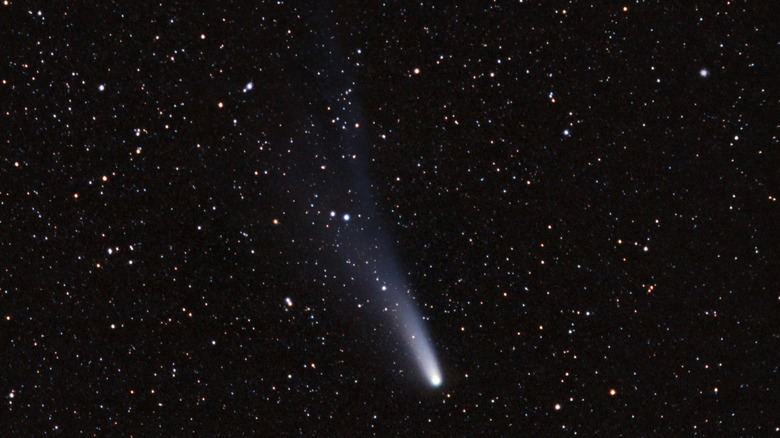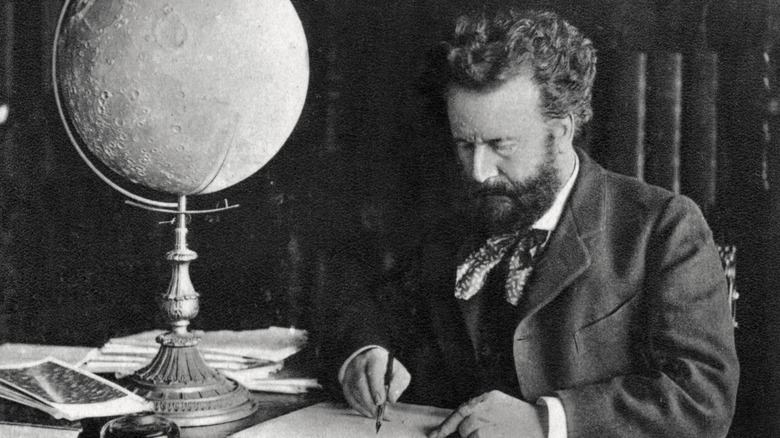Why People Believed The World Would End After Halley's Comet Arrived In 1910
Predictions of the apocalypse are nothing new for people of the late-20th and early-21st centuries. While none have come true, of course, a variety of different theories regarding Earth's demise have nevertheless surfaced. Harold Camping is one of the most infamous examples of those who would peddle assurance (or stoke fear, depending on your outlook) that the end was nigh (via ABC). Hundreds of his followers sold their possessions and spent their savings out of the belief that 2011 would be the year of Judgement day, per Camping's mathematically "backed" conclusions.
In 1910, the arrival of Halley's Comet evoked similar fear of a world-ending event. From February to its passing in May, people across the world held their breath as nothing ultimately happened. Unlike other predictions of Earth encountering extraterrestrial objects, few were concerned that the comet would harm Earth through a collision. Instead, it was strongly believed that the comet would snuff out all life on Earth as it neared (via Library of Congress).
It was feared that Halley's comet would poison life on Earth
According to All That's Interesting the threat of cyanogen gas, reported as present in the comet by Camille Flammarion (pictured above), presented an immense and virtually inescapable danger in the minds of people around the world. When knowledge became mainstream of how exceptionally small amounts were fatal subsequently, and newspapers began to feature Flammarion's (admittedly uncertain) speculation of its global risk on their front pages, mass panic was almost guaranteed. Placebos of all kinds were being regularly sold by opportunistic salesmen as preventative measures against the supposed mass-poisoning as May approached.
A separate but related and equally unhelpful prediction was that ocean basins would exchange waters as a result of the comet, something that would result in apocalyptic floods. Most were concerned with the prospective gas though, and as the day approached, many prayed and took whatever safety precautions they thought were necessary. When Halley's comet went on its way without leaving any tangible effect, people around the world were relieved as at least this apocalypse fear was now thoroughly debunked (via Astronomy.com).

